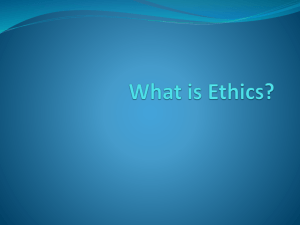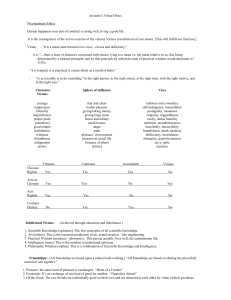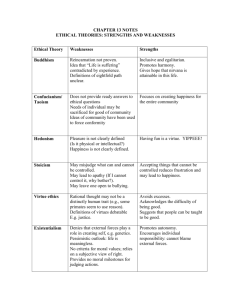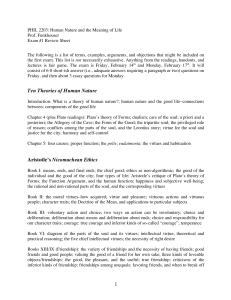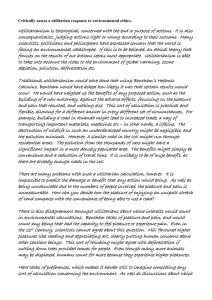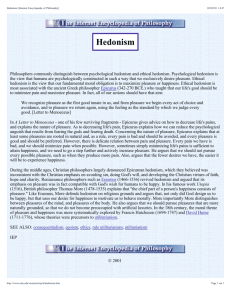TELEOLOGICAL ETHICS AND DEONTOLOGICAL ETHICS
advertisement
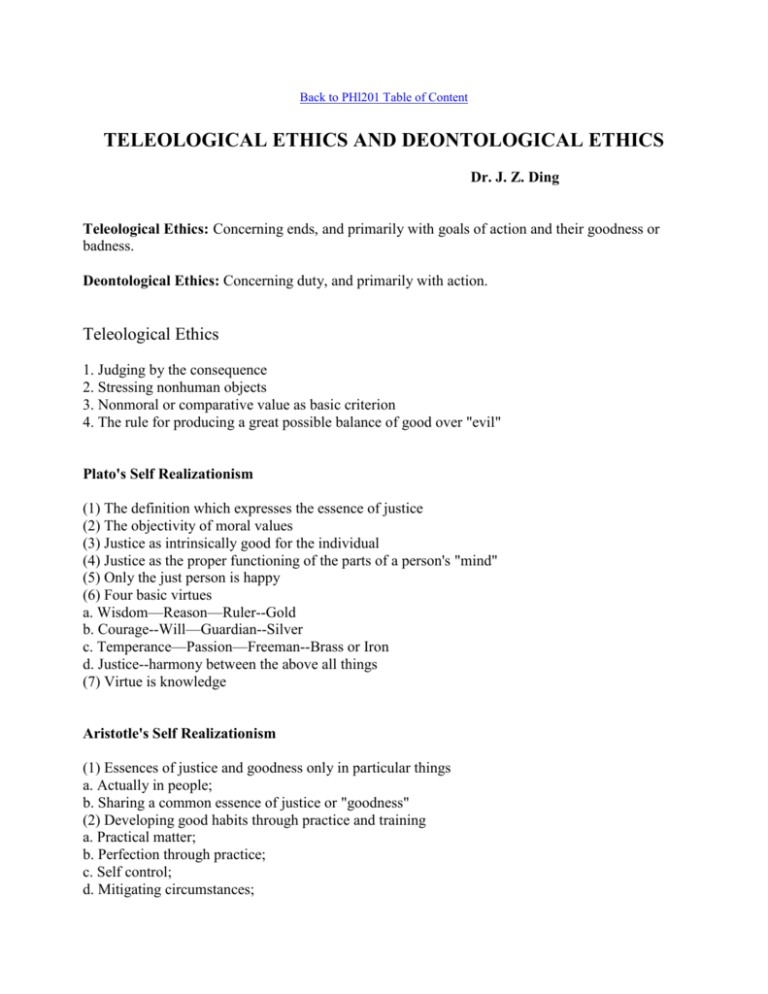
Back to PHl201 Table of Content TELEOLOGICAL ETHICS AND DEONTOLOGICAL ETHICS Dr. J. Z. Ding Teleological Ethics: Concerning ends, and primarily with goals of action and their goodness or badness. Deontological Ethics: Concerning duty, and primarily with action. Teleological Ethics 1. Judging by the consequence 2. Stressing nonhuman objects 3. Nonmoral or comparative value as basic criterion 4. The rule for producing a great possible balance of good over "evil" Plato's Self Realizationism (1) The definition which expresses the essence of justice (2) The objectivity of moral values (3) Justice as intrinsically good for the individual (4) Justice as the proper functioning of the parts of a person's "mind" (5) Only the just person is happy (6) Four basic virtues a. Wisdom—Reason—Ruler--Gold b. Courage--Will—Guardian--Silver c. Temperance—Passion—Freeman--Brass or Iron d. Justice--harmony between the above all things (7) Virtue is knowledge Aristotle's Self Realizationism (1) Essences of justice and goodness only in particular things a. Actually in people; b. Sharing a common essence of justice or "goodness" (2) Developing good habits through practice and training a. Practical matter; b. Perfection through practice; c. Self control; d. Mitigating circumstances; e. History of improper "training" (3) Responsibility for failing to develop the good habits a. A dispositional account of human capacities and incapacities b. Cannot do today and could learn how to do tomorrow (4) Moral and intellectual virtues a. Defining human virtue in terms of the distinctive traits of human nature (like Plato) b. "Intellectual virtues "ultimate aim in life as a life of intellectual contemplation for its own sake c. The importance of reason and understanding d. The role of reason in moral actions in everyday life (unlike Plato) e. " Moral virtue "--the practical virtues of moral action in the everyday life f. Balance between the good life and reason--combination between intelligence and experience (5) Common good as basic criterion for politics a. The highest good b. The criterion for right or deviant constitution Epicures' Hedonism The theory of the good life that takes pleasure to be the ultimate good (1) Ultimate good and ultimate evil (2) Temporary pleasure and temporary pain (3) Mental pleasure and physical pleasure Psychological hedonism: Everyone is motivated by the desire to acquire pleasure; that this is our goal in life. (Freud) Ethical hedonism: Independent of what people actually aim at, they should aim at pleasure, which is the only thing worth having in its own right. (Bentham, Mill) Bentham's Utilitarianism We should act in such ways as to make the greatest number of people as happy as possible. (1) The greatest happiness principle (2) Quantitative study of pleasure (3) Six criteria for measuring pleasure or pain Mill's Utilitarianism (Rule Utilitarianism) (1) The principle of utility (2) Qualitative study of pleasure (3) Reforming

